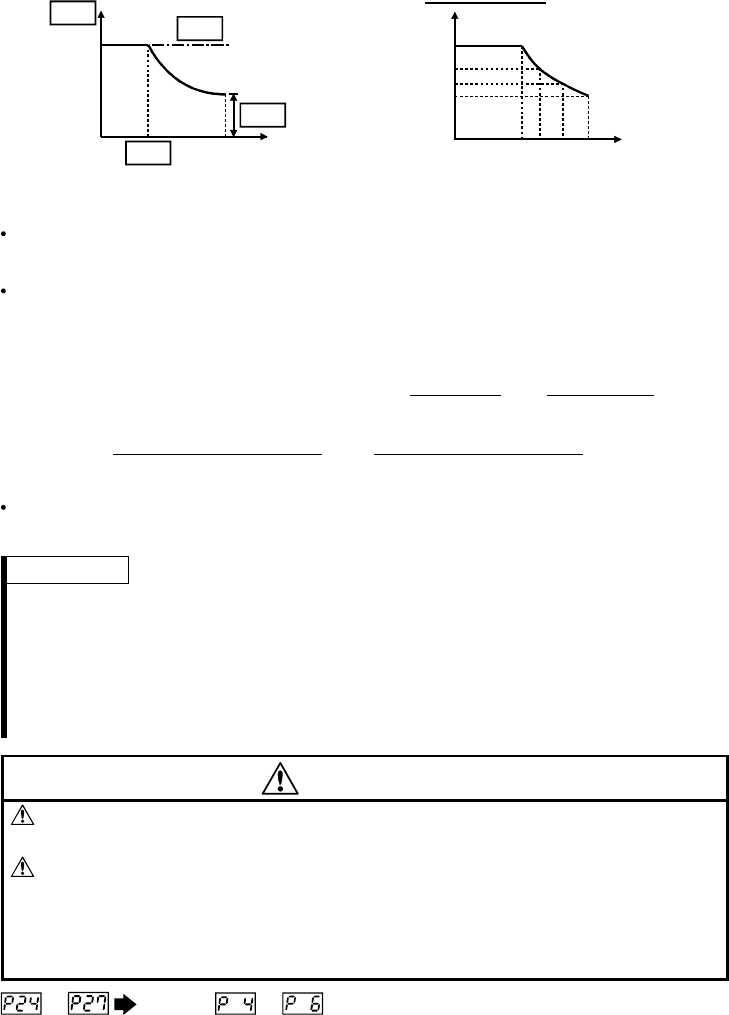
70
120Hz
Pr.22
Pr.28
Pr.23
Stall prevention
operation level (%)
Output
frequency (Hz
)
Reduction ratio
compensation factor (%)
="- - -"
Pr.23
When
Setting example
(Pr.22=150%,
Pr.23=100%, Pr.28=60Hz)
150
90
75
0
6080100120
112.5
Stall prevention
operation level (%)
Output
frequency (Hz)
<Setting>
Generally, set 150% (factory setting) in Pr. 22 "stall prevention operation level".
Setting "0" in Pr. 22 disables stall prevention operation.
To reduce the stall prevention operation level in the high frequency range, set the
reduction starting frequency in Pr. 28 "stall prevention operation reduction starting
frequency" and the reduction ratio compensation factor in Pr. 23.
Calculation expression for stall prevention operation level
Pr. 22 - A Pr. 23 - 100
Stall prevention operation level (%) = A + B × [
Pr. 22-B
] × [
100
]
Pr. 28 (Hz) × Pr. 22 (%) Pr. 28 (Hz) × Pr. 22 (%)
where, A =
output frequency (Hz)
, B =
120Hz
By setting "- - -" (factory setting) in Pr. 23, the stall prevention operation level is
constant at the Pr. 22 setting up to 120Hz.
REMARKS
When the fast-response current limit is set in Pr. 21 "stall prevention function
selection" (factory setting), do not set any value above 170% in Pr. 22. The torque
will not be developed by doing so.
If the Pr. 22 value is set to higher than 170%, make setting in Pr. 21 to disable the
fast-response current limit.
In vertical lift applications, make setting so the fast-response current limit is not
cativated. Torque may not be produced, causing a gravity drop.
CAUTION
Do not set a small value as the stall prevention operation current.
Otherwise, torque generated will reduce.
Test operation must be performed.
Stall prevention operation during acceleration may increase the acceleration time.
Stall prevention operation during constant speed may change the speed suddenly.
Stall prevention operation during deceleration may increase the deceleration
time, increasing the deceleration distance.
to Refer to to (page 61)


















